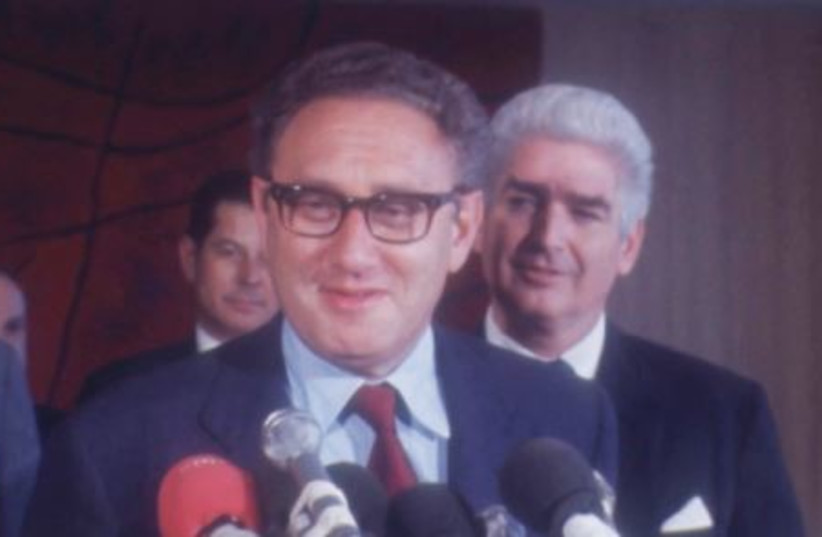Paul Goldberg’s new novel, The Dissident, begins in the Soviet Union on January 13, 1976. Albert Schwartz has promised to officiate at the wedding of Viktor Moroz, his fellow refusenik, and bring along three old men who remember how marriages were performed in the shtetl. When Albert fails to show up, Viktor races to his apartment and discovers that Albert and his gay lover, Alex Foxman, an American diplomat, have been brutally murdered.
When Viktor is seen fleeing the scene, a KGB agent gives him an ultimatum: Cooperate, find the murderer (and get an exit visa), or be accused of committing the crime. Viktor must finish the job before January 22, when US Secretary of State Henry Kissinger arrives in Moscow to discuss a new SALT agreement with Premier Leonid Brezhnev. To solve the case, Viktor enlists his wife, Oksana Moskvina, an English teacher, who has lost her job for distributing texts banned by the Soviet authorities, and their friends in Moscow’s dissident community.
A darkly humorous tale of Soviet Jewry
Born in the Soviet Union, Paul Goldberg immigrated to the United States when he was 14 years old. A journalist, editor, and publisher of the weekly online news publication The Cancer Letter, he is the author of two books about the Soviet human rights movement, and two previous novels, The Yid, and The Cháteau. In writing The Dissident, a work of historical fiction, Goldberg drew on a wide array of sources, including documents from the Moscow Helsinki Watch Group; Mikhail Bulgakov’s iconic novel, The Master and Margarita; and information about the activities of the KGB, CIA, and Mossad in the 1970s.
Darkly humorous, philosophical, and suspenseful, with a memorable cast of characters, The Dissident illuminates the human rights movement and the struggle of Soviet Jews to get permission to move to Israel, and presents a harshly critical account of Cold War diplomacy.
Along the way, Goldberg provides a tutorial on the Russian language, a guided tour of Moscow’s neighborhoods, and information about the political culture in the Soviet Union during these years. Faced with what they regarded as a “Zionist carousel of eternal return,” he indicates, Soviet authorities invoked the slippery slope: “You let them go, then republics will go off in their own directions, Japan will lop off Sakhalin, the Chechens will get armed. Then, what, capitalism?”

Meanwhile, the bureaucracy grinds on. How long does it take for a marriage application to be processed, Viktor asks “a Soviet madame who doesn’t seem to be doing anything in particular.”
“One month if the newlyweds were born in the same year,” she replies; “three if not.”
When Viktor points out that the practice is illogical, the bureaucrat shoots back, “The regulations are written for us, and we implement them. Take the application, fill it out, and come back, if you wish. The state doesn’t care what you do.”
And Soviet citizens laugh, with tears in their eyes, at the joke “How is Lubyanka the tallest building in Moscow? Because you can see Siberia [your next destination] from the cellar [of Lubyanka prison].”
The fundamental question posed by The Dissident is whether cooperating with the KGB is ethical. Should anyone ever make a deal with Satan? Viktor asks. And can a deal be dissolved? Most importantly, Viktor tells his friends, “I have been threatened with a series of or-elses, but never, never have I said yes in exchange for a consideration.”
Vitaly Golden, a refusenik and founder of the Seminar on Jewish Culture, opines that “history creates circumstances that drive free will into irrelevance.”
And Oksana doubts that her husband will lose his soul if he agrees to the KGB’s terms. In Bulgakov’s novel, she indicates, Margarita proposes the deal the Master makes with Satan, “not because she is weak, but because she is strong.”
Oksana wonders whether every collaboration with the KGB is dishonorable: “If change is possible in our country, at some point people of honor will need to talk with – perhaps even negotiate with – people who lack it. Isn’t that so?” Convinced that the KGB officer handling the case “may even have a twinge of honor,” she set conditions necessary to secure the couple’s cooperation.
That said, Goldberg refuses to let Cold War policymakers, especially Henry Kissinger, off the hook.
“In a matter this sensitive,” the secretary of state, who knows about the murders, tells Brezhnev, “we will need to have a hostage.”
In his acknowledgments, Goldberg reveals that he took a statement Kissinger actually made to president Richard Nixon in 1973 – “And if they put Jews in gas chambers in the Soviet Union, it is not an American concern. Maybe a humanitarian concern” – out of context and applied it to the issue of securing freedom for Soviet Jews.
The Dissident does and does not have a happy ending. The murderer, who has struck again, is identified and punished; his surprising motive is revealed. Some, but not all, of the conditions agreed to by the KGB official are honored.
Sometimes we live to see the waters part, Goldberg reminds us, and sometimes silence descends.
The writer is the Thomas and Dorothy Litwin Professor of American Studies at Cornell University.
The Dissident: A Novel
By Paul Goldberg
Farrar, Straus, and Giroux
411 pages; $28
